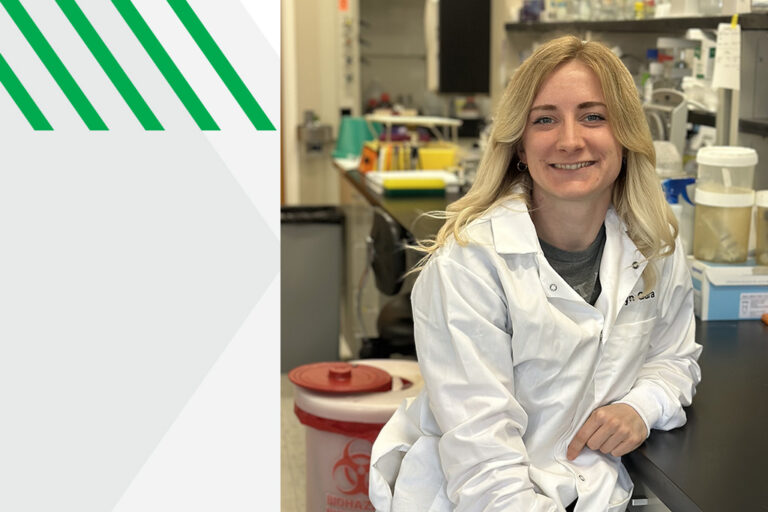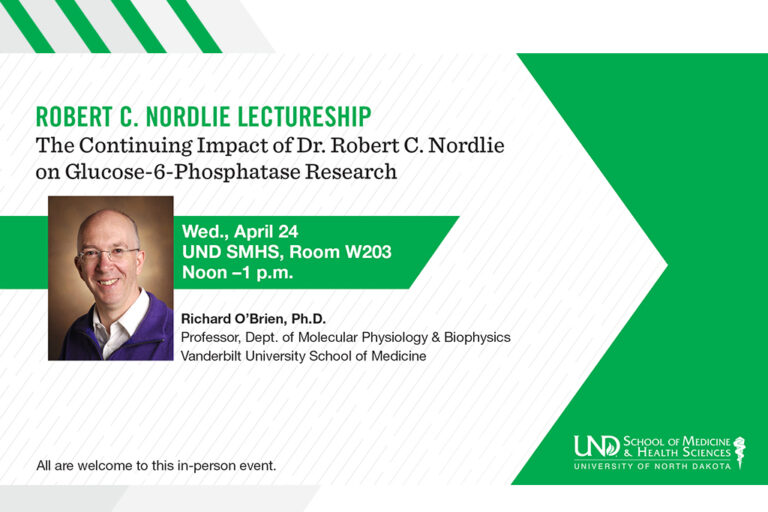Jingwei Cheng to discuss Merkel cell polyomavirus ST antigen and tumorigenesis on Dec. 4
 The UND Department of Biomedical Sciences and the School of Medicine & Health Sciences (SMHS) Host-Pathogen Interactions CoBRE Group present their next Faculty Candidate Seminar Wednesday, Dec. 4. At noon that day, in SMHS Room W202, Jingwei Cheng, Ph.D., instructor in Medicine at Harvard Medical School, will present “Merkel cell polyomavirus ST antigen stabilizes L-Myc and Tip60 complex interaction.”
The UND Department of Biomedical Sciences and the School of Medicine & Health Sciences (SMHS) Host-Pathogen Interactions CoBRE Group present their next Faculty Candidate Seminar Wednesday, Dec. 4. At noon that day, in SMHS Room W202, Jingwei Cheng, Ph.D., instructor in Medicine at Harvard Medical School, will present “Merkel cell polyomavirus ST antigen stabilizes L-Myc and Tip60 complex interaction.”
Merkel cell polyomavirus (MCV) is the etiological agent for Merkel cell carcinoma (MCC) in 80% of cases. MCV small tumor antigen (ST) is required for MCV-mediated transformation in tissue culture and mouse models. Dr. Cheng recently performed immunoprecipitation followed by mass spectrometry and identified the ST, L-Myc, and Tip60-EP400 complex (SLaP). Integration of ChIP-seq and RNA-seq experiments determined that SLaP acts as a transcriptional activator. L-Myc is a member of the human Myc gene family that is estimated to contribute to at least 75% of all human cancers. Although Myc has been discovered for over 40 years and many Myc interacting proteins have been identified, it is still not clear which Myc binding partners are responsible for the transforming potential of Myc in human cancers. Dr. Cheng’s data strongly argues that binding Tip60-EP400 complex is the major activity contributes to Myc induced tumorigenesis.
Dr. Cheng’s ChIP-seq and RNA-seq experiments identified several critical targets downstream of L-Myc including the epigenetic regulator PRMT5, which was also identified as an essential gene in MCC from his genome-wide CRISPR/Cas9 mediated negative selection screen. PRMT5 is the main protein arginine methyltransferase (PRMT) responsible for catalyzing symmetric di-methylation of arginine residues in histones and splicing factors. PRMT5 removes detained introns and has been identified as an emerging therapeutic target in several types of cancers including lymphoma, glioma, breast cancer, and lung cancer. Myc has been suggested as a general amplifier of total mRNA production, which may overwhelm the splicing machinery. Dr. Cheng demonstrated that PRMT5 is required to safeguard proper splicing of key factors such as EIF4E, Tip60, and MDM4 to promote translation and proliferation in MCC. PRMT5 inhibitors may represent a novel therapeutic strategy to treat MCC.
Everyone is welcome to attend.



